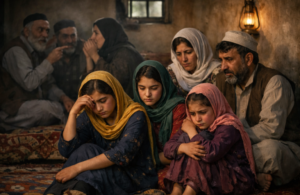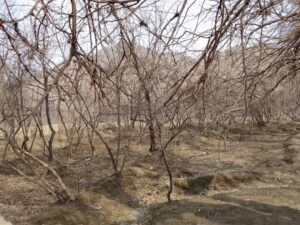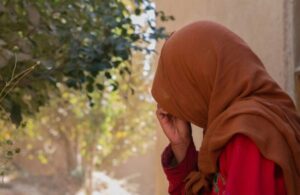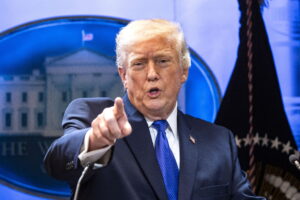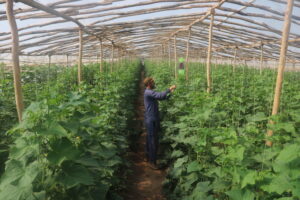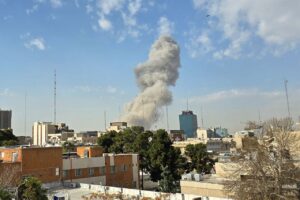The potential uptake in the peace process and the outcomes of the recent 2020 Afghanistan Conference in Geneva are positive steps towards a peaceful Afghanistan. However, even if the peace process succeeds, Afghanistan needs to cover a long journey to have a stable economy. Fighting against corruption, including bringing reforms and building institutional capacity of key government entities are crucial for social contract between state and society, and sustainable peace in Afghanistan.
Afghanistan’s international legal obligations on preventing and prosecuting corruption are derived primarily from the 2003 United Nations Convention Against Corruption (UNCAC), which Afghanistan signed on 20 February 2004 and ratified on 25 August 2008.
Afghanistan has made steady progress in the fight against corruption, but the country has a long way to go. Countering corruption is a complex task that involves legislation, institutional enhancement, systems building, digitization, political will as well as peace and security. In addition, the country needs the resources and support from international partners to succeed in this endeavor.
Denmark, as one of main supporters of Afghanistan in rule of law and justice sector has stood with the country throughout the past two decades as the country rebuilt its institutions. With a zero-tolerance policy for corruption, for both internal government spending as well as for the use of its international development funds, Denmark has played a leading role in supporting anti-corruption efforts in Afghanistan.
- WJ call for exposing names of the parliamentarians involved in corruption
- Western capitals show support for sovereign Afghanistan
Through partnership with the United Nations Development Programme (UNDP) in Afghanistan, Denmark has supported anticorruption efforts by funding Anti-Corruption, Transparency, Integrity and Openness (ACTION) Project, supporting both institutional enhancement and civilian engagement to increase public involvement and trust in the Afghan Security and Justice institutions. On the government institutions, the project is supporting the Anti-Corruption Justice Center (ACJC) to enhance their capacity to address high-level corruption cases. On the public engagement side, the project is working with civil society to improve public trust in the state.
By the same token, Republic of Korea has undergone a fast development journey, rising from the ashes of the Korean War in 1950s to become a member of the Organization for Economic Cooperation and Development (OECD) Development Assistance Committee; and it has accumulated rich experience and know-how in tackling corruption through the years.
Under the ACTION project funded by Denmark, and with support of the Embassy of the Republic of Korea and UNDP Policy Center in Seoul an exchange of experiences took place with the Attorney General’s Office, ACJC and the newly formed Anti-Corruption Commission.
The experience sharing session presented how the Anti-Corruption & Civil Rights Commission (ACRC) of the Republic of Korea has employed strategic tools for prevention of corruption, including: 1) Anti-Corruption Initiative Assessment (AIA) for monitoring corruption prevention efforts in public institutions; and 2) Corruption Risk Assessment (CRA) removing corruption risks in bills and legislations. These tools have successfully created an institutional mechanism for ACRC to compel, institutionalize and incentivize government and public sector organizations to implement targeted anti-corruption initiatives and take proactive attitudes towards anti-corruption efforts over the past two decades. The Korean experience also highlighted the importance of integrating anti-corruption measures into all government functions and service delivery mechanisms for sustainable anti-corruption governance.
Corruption is a central issue for Afghanistan to deal with, as the country made a commitment at the recent Geneva Conference on Afghanistan and as one of the main conditionalities for continued support to the country by the international community in Afghanistan Partnership Framework (APF).
For the UN, anti-corruption is central for achieving the Sustainable Development Goals (SDGs). The SDGs make a clear link between corruption and peaceful and inclusive societies. SDG 16 and its targets on reducing bribery, strengthening institutions, and access to information are not only valuable aspirations, but they are also vital conditions for the achievement of all the SDGs.
Tackling Corruption is a difficult task that needs long-term effort and commitment. It is a continues process, which requires not only government institutions, but also the people’s involvement to make the institutions responsive to the needs of citizens, bringing transparency and accountability to the system and delivering equal services to the community.
We are happy to see that Attorney General Office, Anti-Corruption Commission and Anti-Corruption Justice Center of Afghanistan are taking actions to prevent, investigate, prosecute, and adjudicate corruption cases. Tackling corruption requires, strengthened anti-corruption entities through building their institutional and technical capacity in a sustainable manner.
Denmark and Republic of Korea, in coordination with UNDP will continue to support Afghanistan’s effort to strengthen institutions to prevent and root out corruption in all its forms, utilizing proven tools which can be adjusted toward Afghanistan’s situation. This is a major issue that cannot be addressed unless there is clear coordination between all actors and willingness to join efforts collectively. The road ahead might be difficult, but it can be achieved if we are consistent and united to help the country deal with this issue.
issue.
AUTHORS:
Nathalia Feinberg
Ms. Nathalia Feinberg is the Danish Ambassador to the Islamic Republic of Afghanistan. Prior to her appointment to Afghanistan, she has served as the Head of Mission at the Danish representative office in Ramallah, Palestine. Ambassador Feinberg has held a number of positions within the Danish Ministry of Foreign Affairs, including as head of multi-lateral cooperation and head of development policy. She has also served as the Danish Ambassador to Kampala and as deputy head of mission at the Danish Embassy in Dhaka, Bangladesh.
Choi Tae-ho
Mr. Choi Tae-ho is the Ambassador of Republic of Korea to the Islamic Republic of Afghanistan. Mr. Choi Tae-ho is a career diplomat with more than 2 decades of experience in the Korean foreign service.
Abdallah Al Dardari
Abdallah Al Dardari is UNDP’s Resident Representative for Afghanistan. Before joining UNDP, Mr. Al Dardari served as a Senior Advisor to the World Bank, and Deputy Executive Secretary and Chief Economist of the United Nations Economic and Social Commission for Western Asia. He also served as Deputy Prime Minister and Chair of State Planning Commission of Syria. Mr. Dardari holds an MA in International Relations and Economics from the University of Southern California and London School of Economics (LSE) and a doctorate in economics from the University of Richmond in the United States.
ENDS

